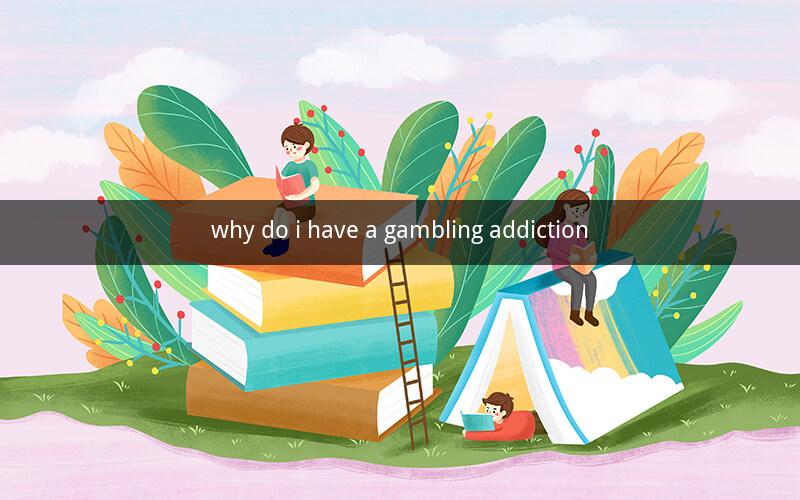
Understanding the Roots of Gambling Addiction
Table of Contents
1. The Definition of Gambling Addiction
2. Signs and Symptoms of Gambling Addiction
3. Psychological Factors Contributing to Gambling Addiction
4. Social and Environmental Influences on Gambling Behavior
5. The Impact of Gambling Addiction on Personal Life
6. Treatment Options for Gambling Addiction
7. Preventing and Overcoming Gambling Addiction
1. The Definition of Gambling Addiction
Gambling addiction, also known as problem gambling or compulsive gambling, is a behavioral disorder characterized by an inability to control the urge to gamble, despite the negative consequences it may have on one's personal, financial, and social life.
2. Signs and Symptoms of Gambling Addiction
Identifying the signs and symptoms of gambling addiction is crucial for early intervention. Common indicators include:
- Spending more time and money on gambling than intended
- Feeling restless or irritable when attempting to cut down or stop gambling
- Continuously chasing losses, hoping to win back money
- Lying to family, friends, or therapists about the extent of gambling activities
- Using gambling as a way to escape problems or negative emotions
- Risking significant relationships, job, or education due to gambling
3. Psychological Factors Contributing to Gambling Addiction
Several psychological factors may contribute to the development of gambling addiction:
- Impulse control disorders: Individuals with poor impulse control may be more susceptible to developing gambling addiction.
- Mood disorders: Depression, anxiety, and bipolar disorder can increase the likelihood of engaging in risky behaviors, such as gambling.
- Personality traits: Certain personality traits, such as thrill-seeking and sensation-seeking, may make individuals more prone to gambling addiction.
4. Social and Environmental Influences on Gambling Behavior
Social and environmental factors can significantly influence gambling behavior:
- Availability of gambling opportunities: Easy access to casinos, online gambling sites, and lottery tickets can contribute to increased gambling activity.
- Peer pressure: Friends or family members who engage in gambling may encourage others to participate as well.
- Media portrayal: The media often portrays gambling as an enjoyable and glamorous activity, which may attract individuals who are impressionable.
5. The Impact of Gambling Addiction on Personal Life
Gambling addiction can have severe consequences on an individual's personal life:
- Financial problems: Debts, bankruptcy, and loss of savings are common outcomes of gambling addiction.
- Relationship issues: Infidelity, domestic violence, and separation or divorce may occur due to the stress and financial strain caused by gambling.
- Legal problems: Individuals with gambling addiction may face arrest or legal repercussions due to illegal gambling activities or theft to fund their addiction.
6. Treatment Options for Gambling Addiction
Treating gambling addiction typically involves a combination of therapy, support groups, and lifestyle changes:
- Cognitive-behavioral therapy (CBT): CBT helps individuals identify and change negative thought patterns and behaviors associated with gambling.
- Motivational interviewing: This therapy technique encourages individuals to explore their ambivalence about changing their gambling behavior.
- Support groups: Groups such as Gamblers Anonymous provide a supportive environment for individuals to share their experiences and learn from others.
7. Preventing and Overcoming Gambling Addiction
Preventing and overcoming gambling addiction requires a proactive approach:
- Set personal limits: Establish a budget for gambling activities and stick to it.
- Avoid risky situations: Stay away from casinos, online gambling sites, and other triggers that may encourage gambling.
- Seek support: Reach out to friends, family, or professionals for help and encouragement.
- Develop healthy coping mechanisms: Find alternative ways to deal with stress, anxiety, or boredom, such as exercise, hobbies, or social activities.
10 Questions and Answers
Question 1: What is the most common cause of gambling addiction?
Answer: While there is no single cause of gambling addiction, a combination of psychological, social, and environmental factors often contributes to its development.
Question 2: Can gambling addiction be cured?
Answer: Gambling addiction is a chronic condition, but it can be effectively managed with proper treatment and support.
Question 3: How can I tell if someone has a gambling addiction?
Answer: Look for signs such as increased time spent on gambling, financial problems, and changes in behavior or mood.
Question 4: Is there a genetic component to gambling addiction?
Answer: Yes, research suggests that genetics may play a role in an individual's susceptibility to gambling addiction.
Question 5: Can therapy help someone overcome gambling addiction?
Answer: Yes, therapy, particularly cognitive-behavioral therapy, has been shown to be effective in treating gambling addiction.
Question 6: Are there any medications that can help treat gambling addiction?
Answer: Currently, there are no medications specifically designed to treat gambling addiction, but certain medications may help manage underlying mood disorders or impulsivity.
Question 7: Can gambling addiction lead to other mental health issues?
Answer: Yes, gambling addiction can exacerbate or trigger other mental health issues, such as depression and anxiety.
Question 8: How can I help a loved one with a gambling addiction?
Answer: Offer support, encourage them to seek professional help, and be patient as they work through their addiction.
Question 9: Can online gambling be more addictive than traditional gambling?
Answer: Yes, online gambling can be more addictive due to its accessibility, anonymity, and fast-paced nature.
Question 10: Is there a support group for individuals with gambling addiction?
Answer: Yes, Gamblers Anonymous and other support groups are available to provide assistance and support to individuals struggling with gambling addiction.